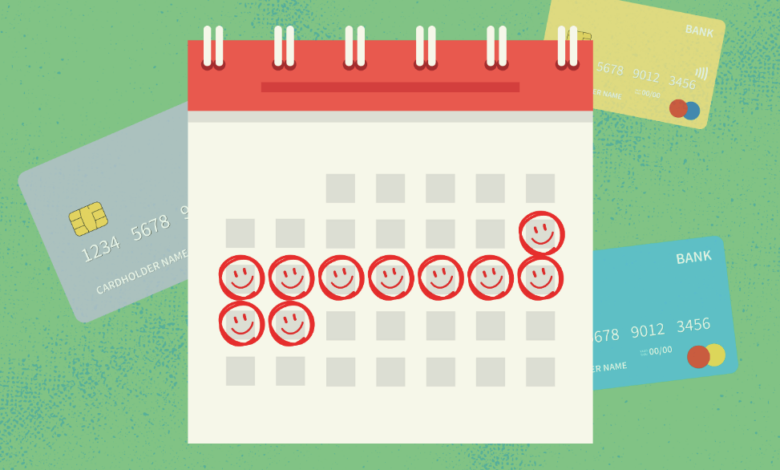
Learn All About What is the Grace Period on a Credit Card?
In the realm of personal finance, credit cards play a significant role, offering convenience and flexibility when it comes to making purchases. One essential feature of what is the grace period on a credit card, a timeframe during which cardholders can avoid paying interest on their outstanding balance. Understanding how the grace period works is crucial to managing credit card debt responsibly and optimizing its benefits.
How the Grace Period Works
Let’s say a credit card billing cycle ends on the 15th of each month, and the payment due date falls on the 5th of the following month. If the cardholder makes purchases during the billing cycle, those charges will be reflected in the statement. To avoid interest charges, the cardholder must pay the entire outstanding balance by the 5th of the next month.
Advantages of a Grace Period
The grace period provides several advantages to credit card users. Firstly, it allows them to carry a balance for a short period without incurring interest. This can be beneficial in situations where immediate funds are not available but will be in the near future. Additionally, the grace period promotes responsible financial behavior, encouraging cardholders to clear their debt promptly.
Grace Period and Interest Rates
It’s crucial to note that the grace period only applies to cardholders who pay their balance in full each month. If a cardholder carries a balance from one month to the next, the credit card company will charge interest on the average daily balance from the date of purchase. The interest rate applied can significantly impact the total amount owed over time.
Paying off the Balance within the Grace Period
To take full advantage of the grace period, cardholders should make it a habit to pay off their entire credit card balance before the due date. By doing so, they can enjoy interest-free credit and avoid accumulating debt that accrues interest over time.
Potential Pitfalls to Watch Out For
While the grace period can be a valuable tool for responsible credit card use, there are potential pitfalls to be aware of. Missing the payment due date, even by a day, can result in losing the grace period for the current billing cycle. Additionally, certain transactions, such as cash advances and balance transfers, may not have a grace period, leading to immediate interest charges.
Importance of Reading Credit Card Terms
Every credit card comes with its terms and conditions, and these can vary significantly between different issuers. Reading and understanding these terms is essential to know if the card offers a grace period, the duration of the grace period, and any other relevant details that could impact the cardholder’s financial decisions.
Tips for Utilizing the Grace Period Wisely
To make the most of the grace period, consider setting up payment reminders to ensure timely credit card payments. Keeping track of the billing cycle and due dates can prevent unnecessary interest charges and late fees. Additionally, try to limit credit card spending to what can be comfortably paid off within the grace period.
Managing Credit Card Debt Effectively
While the grace period can provide short-term relief from interest charges, managing credit card debt effectively requires a comprehensive strategy. Creating a budget, prioritizing debt repayment, and exploring debt consolidation options are essential steps in achieving financial stability.
Improving Credit Score with Grace Period
Consistently paying off credit card balances within the grace period can positively impact an individual’s credit score. On-time payments contribute to a positive payment history, which is a crucial factor in credit scoring models.
Common Misconceptions about the what is the grace period on a credit card
Misconceptions about the grace period can lead to confusion among credit card users. One common misunderstanding is assuming that all credit cards automatically offer a grace period. As mentioned earlier, not all cards have this feature, so verifying the terms is vital before using the card.
Grace Period vs. Minimum Payment
It’s important to distinguish between the grace period and the minimum payment. The grace period is when interest is waived on the balance when paid in full. On the other hand, the minimum payment is the smallest amount a cardholder must pay to maintain their account in good standing. Paying only the minimum price will likely result in carrying a balance and incurring interest charges.
Grace Period and Late Payments
Late payments can have severe consequences on credit card accounts. If the cardholder misses the payment due date, they may lose the grace period for the current billing cycle and be subject to late fees. Moreover, late payments can negatively impact the individual’s credit score. Read more…
Conclusion
Understanding thewhat is the grace period on a credit card is essential for responsible credit card usage. It provides cardholders with an interest-free period to pay off their balances, promoting financial responsibility and preventing unnecessary debt. However, reading and comprehend the credit card terms is crucial to take full advantage of this benefit and avoid potential pitfalls.
FAQs
1. Is a grace period mandatory for all credit cards?. Some cards, especially those with higher interest rates, may not include this feature. Always check the terms and conditions before applying for a credit card.
2. Can the grace period be extended? The grace period’s duration is typically fixed and cannot be extended. The credit card issuer determines it and is part of the card’s terms.
3. What happens if I miss the grace period’s due date? If you miss the grace period’s due date, you may lose the interest-free period for that billing cycle. Additionally, you could be charged late fees, which may negatively impact your credit score.
4. Can I use the grace period to avoid interest on cash advances? The grace period generally does not apply to cash advances or balance transfers. Pull on these transactions may start accruing immediately.
5. How can I calculate the grace period for my credit card? To calculate the grace period, check the credit card statement for the billing cycle’s end date and count the days until the payment due date. This number of days represents the grace period available for that billing cycle.



